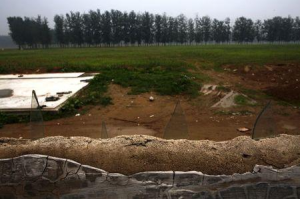Strange Times: NY Times On China's Golf Crackdown
/With Tiger Woods slated to announced his big Beijing design job on April 23rd, the recent stories out of China about golf crackdowns figure to make the wording of that announcement extra fun! Thanks to all who sent Austin Ramzy's NY Times story on the crackdown, which leans quite a bit on the reporting and observations of Dan Washburn. (You can also listen to Dan on this episode of State of the Game.)
Thanks to all who sent Austin Ramzy's NY Times story on the crackdown, which leans quite a bit on the reporting and observations of Dan Washburn. (You can also listen to Dan on this episode of State of the Game.)
Dan Washburn, author of “The Forbidden Game: Golf and the Chinese Dream,” said the crackdown was not surprising given the game’s reputation in China as a capitalist pastime and the extent of Mr. Xi’s prolonged campaign against corruption, which has toppled senior party and military leaders.
“This is Xi Jinping’s China, and it’s clear he’s intent on making his mark,” Mr. Washburn said. “Everyone’s a potential target in this ongoing crackdown on corruption, and golf is a particularly easy and obvious one.”
Washburn penned this CNN piece during Masters week with more insights into this utterly bizarre situation that has the government shutting down courses and politicians, but also funding golf because of its place in the Olympic Games.
In Guangdong province, the birthplace of golf in modern China, an investigative team has been formed to crack down on officials who took part in any of nine golf-related activities. There's even a public hotline for reporting suspected golf violations.
Over the past decade, however, not much seemed like it could get in the way of golf's meteoric growth in China. While it's been illegal to build new golf courses in China since at least 2004, no other country has built more of them over the past decade -- not even close.
Beijing would say new construction is banned, while at the same time local governments would line their pockets with the proceeds from the boom. There didn't seem to be too many rules in all of this, but one was especially important: When building a golf course in China, don't call it a golf course. One massive project of note was known as "ecological restoration."
Washburn speaking in this embedded clip:

















